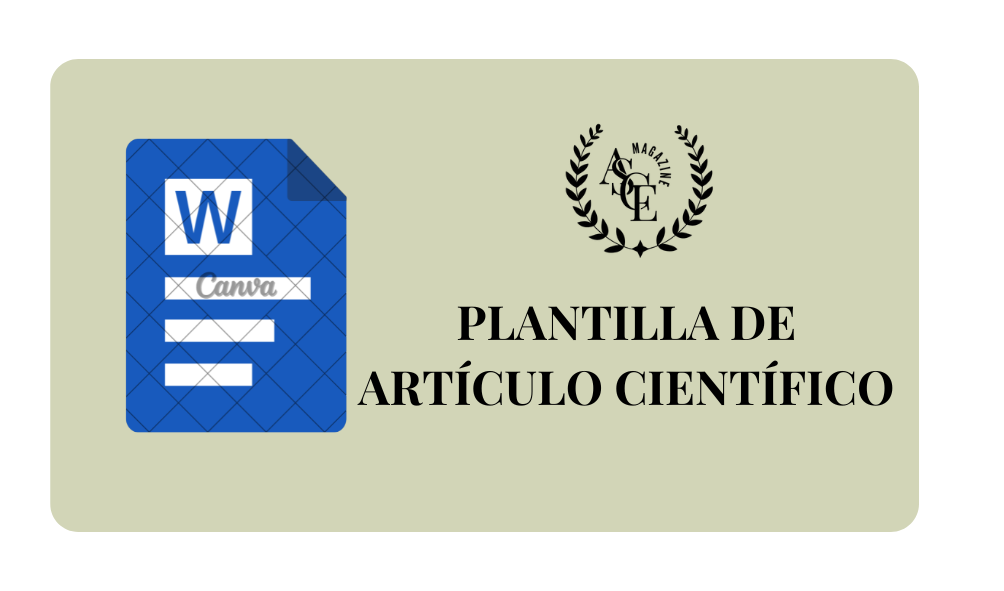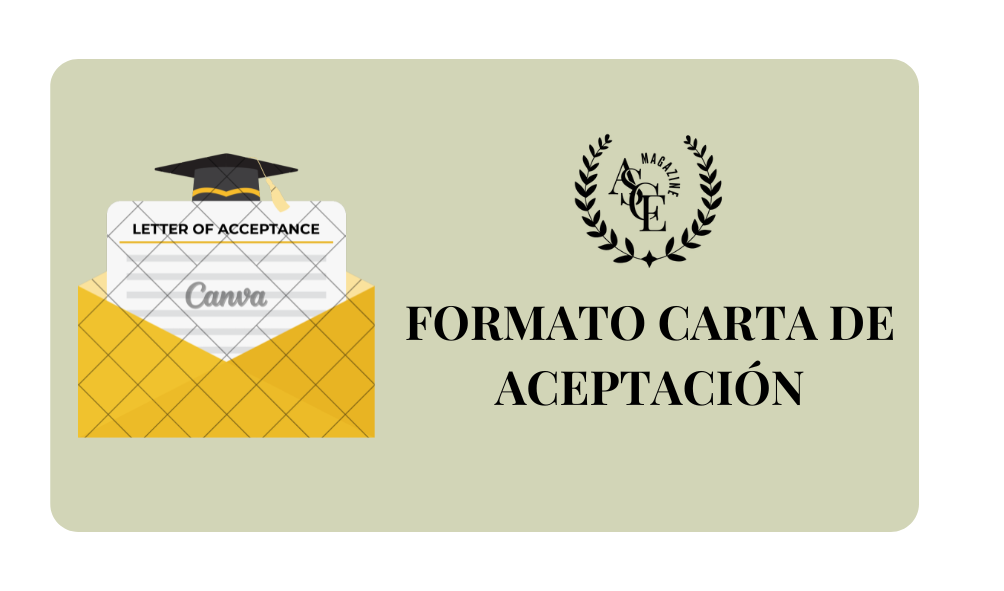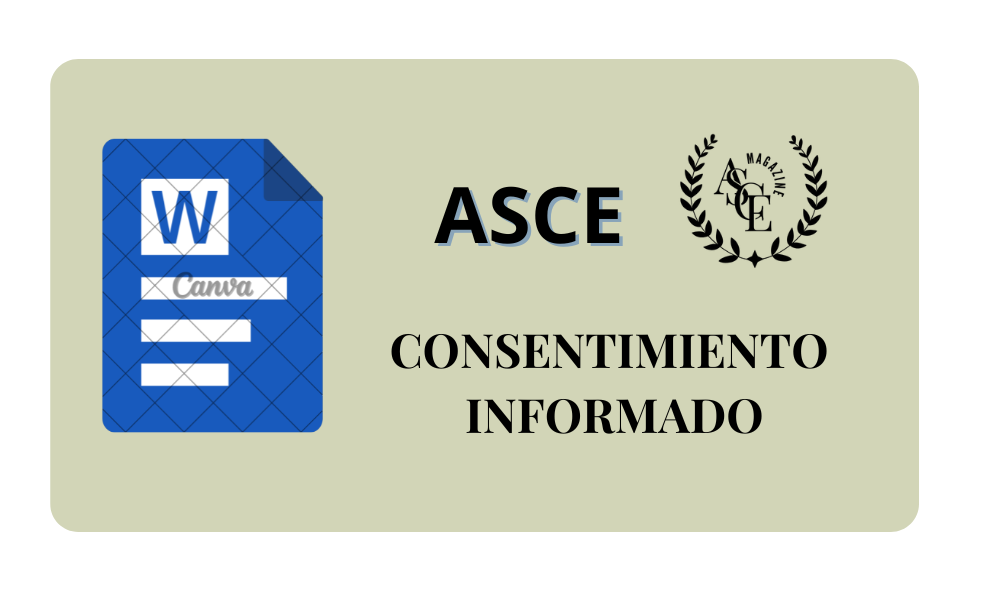Mathematics in Extended Reality: Impact of Hybrid VR/AR Environments on the Development of Thinking.
DOI:
https://doi.org/10.70577/ASCE/2409.2430/2025Keywords:
Gamification, Digital Immersive Environments, Neuroeducation, Mathematics, Complex Problem Solving, Abstract Thinking, Educational Transformation.Abstract
The article "Mathematics in Extended Reality: Impact of Hybrid VR/AR Environments on the Development of Abstract Thinking and Collaborative Resolution of Complex Problems in Education" explores the integration of hybrid Augmented Reality (AR) and Virtual Reality (VR) environments with the advanced cognitive skills necessary for STEM education. This study offers a thorough examination of both the pedagogical goals and the institutional alterations necessitated by shifts in the teaching-learning paradigm.
A quasi-experimental approach was utilized, incorporating control and experimental groups within the secondary school sector. The intervention comprised modules using immersive VR/AR settings in which students collaborated to resolve intricate mathematical problems, specifically in geometric modeling and functional analysis. A variety of instruments were employed, including standardized assessments of abstract reasoning, structured rubrics for collaborative problem-solving, perceptual surveys, and qualitative analyses of group interactions. Principal findings: Students participating in hybrid VR/AR activities shown considerable enhancements in conceptual abstraction and the expression of collaborative techniques relative to the control group. Enhanced intrinsic desire, active engagement, and profound mathematical reasoning were also noted. Furthermore, the institutional adoption of XR platforms resulted in concrete effects, including curriculum modifications, educator training, and classroom reconfiguration—signifying a nascent systemic revolution. This study underscores the beneficial effects of XR technology on the enhancement of abstract reasoning and cooperative problem-solving skills. This comprehensive approach indicates that such innovations can catalyze significant transformations in educational systems, improving both STEM education and institutional flexibility.
Downloads
References
Acosta Porras, J. S., Moyon Sani, V. E., Arias Vega, G. Y., Vásquez Alejandro, L. M., Ruiz Cires, O. A., Albia Vélez, B. K., & Bernal Parraga, A. P. (2024). Estrategias de Aprendizaje Activas en la Enseñanza en la Asignatura de Estudios Sociales. Ciencia Latina Revista Científica Multidisciplinar, 8(5), 411–433. https://doi.org/10.37811/cl_rcm.v8i5.13320
Aguilar Tinoco, R. J., Carvallo Lobato, M. F., Román Camacho, D. E., Liberio Anzules, A. M., Hernández Centeno, J. A., Duran Fajardo, T. B., & Bernal Parraga, A. P. (2024). El Impacto del Diseño Universal para el Aprendizaje (DUA) en la Enseñanza de Ciencias Naturales: Un Enfoque Inclusivo y Personalizado. Ciencia Latina Revista Científica Multidisciplinar, 8(5), 2162–2178. https://doi.org/10.37811/cl_rcm.v8i5.13682
Ahmed, N. (2024). Impact and analysis of a collaborative augmented reality learning experience. Education and Information Technologies. https://doi.org/10.1007/s40692-023-00275-x
Alarcon Burneo , S. N., Basantes Guerra, J. P., Chaglla Lasluisa, W. F., Carvajal Coronado, D. E., Martínez Oviedo, M. Y., Vargas Saritama, M. E., & Bernal Parraga, A. P. (2024). Uso de Recursos Manipulativos para Mejorar la Comprensión de Conceptos Matemáticos Abstractos en la Educación Secundaria. Ciencia Latina Revista Científica Multidisciplinar, 8(5), 1972-1988. https://doi.org/10.37811/cl_rcm.v8i5.13669
Alvarez Piza, R. A., Del Hierro Pérez, M. C., Vera Molina, R. M., Moran Piguave, G. D., Pareja Mancilla, S. S., Narváez Hoyos, J. J., & Bernal Parraga, A. P. (2024). Desarrollo del razonamiento en educación básica mediante aprendizaje basado en problemas y lecciones aprendidas de proyectos matemáticos previos. Ciencia Latina Revista Científica Multidisciplinar, 8(5), 13998-14014. https://doi.org/10.37811/cl_rcm.v8i5.14912
Andreu, J. M. P. (2025). Revisión sistemática sobre aprendizaje colaborativo mediado por realidad aumentada y virtual. TRES. Tecnología, Ciencia y Educación. https://revistas.usal.es/tres/index.php/1130-3743/article/view/31921/30058
Andreu, J. M. P. (2025). Revisión sistemática sobre aprendizaje colaborativo mediado por realidad aumentada y virtual. TRES. Tecnología, Ciencia y Educación. https://revistas.usal.es/tres/index.php/1130-3743/article/view/31921
Andújar, J. M., Mejías, A., & Marín, D. (2021). Augmented reality for the development of spatial reasoning in mathematics. Applied Sciences, 11(6), 2732. https://doi.org/10.3390/app11062732
Arango, R. A., & Tinjacá, G. R. (2023). Competencias colaborativas y realidad aumentada en matemáticas. Revista Científica General José María Córdova, 21(36), 125–147. https://doi.org/10.21830/19006586.1164
Arequipa Molina, A. D., Cruz Roca, A. B., Nuñez Calle, J. J., Moreira Velez, K. L., Guevara Guevara, N. P., Bassantes Guerra, J. P., & Bernal Parraga, A. P. (2024). Formación Docente en Estrategias Innovadoras y su Impacto en el Aprendizaje de las Matemáticas. Ciencia Latina Revista Científica Multidisciplinar, 8(4), 9597-9619. https://doi.org/10.37811/cl_rcm.v8i4.13111
Ávalos Guijarro, A. de los Á. (2025). Uso de realidad virtual y aumentada para mejorar la comprensión de conceptos abstractos en matemáticas. Retos para la Investigación en Educación Matemática. https://www.researchgate.net/publication/381278054
Balalle, H. (2025). Learning beyond realities: Exploring virtual reality, augmented reality, and mixed reality in higher education—a systematic literature review. Smart Learning Environments, 12(1), 1–18. https://link.springer.com/article/10.1007/s44217-025-00559-7
Barana, A., Gaiti, A., & Marchisio, M. (2024). A gamified immersive environment with AR and VR to promote mathematical reasoning. Education and Information Technologies. https://doi.org/10.1007/s10639-024-12398-5
Bernal Párraga , A. P., Ninahualpa Quiña, G., Cruz Roca, A. B., Sarmiento Ayala, M. Y., Reyes Vallejo, M. E., Garcia Carrillo, M. D. J., & Benavides Espín, D. S. (2024). Innovation in Early Childhood: Integrating STEM from the Area of Mathematics for Significant Improvement. Ciencia Latina Revista Científica Multidisciplinar, 8(4), 5675-5699. https://doi.org/10.37811/cl_rcm.v8i4.12779
Bernal Párraga, A. P., Alcívar Vélez, V. E., Pinargote Carreño, V. G., Pulgarín Feijoo, Y. A., & Medina Garate, C. L. (2025). Pensamiento lógico y resolución de problemas: El uso de estrategias de aprendizaje colaborativo para desarrollar habilidades de razonamiento matemático en contextos cotidianos. Arandu UTIC, 12 (1), 360–378. https://doi.org/10.69639/arandu.v12i1.605
Bernal Párraga, A. P., Haro Cedeño, E. L., Reyes Amores, C. G., Arequipa Molina, A. D., Zamora Batioja, I. J., Sandoval Lloacana, M. Y., & Campoverde Duran, V. D. R. (2024). La Gamificación como Estrategia Pedagógica en la Educación Matemática. Ciencia Latina Revista Científica Multidisciplinar, 8(3), 6435–6465. https://doi.org/10.37811/cl_rcm.v8i3.11834
Bernal Párraga, A. P., Sandra Veronica, L. P., Orozco Maldonado, M. E., Arreaga Soriano, L. L., Vera Figueroa, L. V., Chimbay Vallejo, N. M., & Zambrano Lamilla, L. M. (2024). Análisis comparativo de la metodología STEM y otras metodologías activas en la educación general básica. Ciencia Latina Revista Científica Multidisciplinar, 8(4), 10094–10113. https://doi.org/10.37811/cl_rcm.v8i4.13153
Campos, R., García-Peñalvo, F. J., & Seoane-Pardo, A. M. (2021). Effects of augmented reality on mathematics learning: A systematic review. IEEE Access, 9, 104233–104251. https://doi.org/10.1109/ACCESS.2021.3101144
Code INTEF. (2025). Realidad extendida. Experiencias de aprendizaje más inmersivas y personalizadas. INTEF. https://code.intef.es/noticias/realidad-extendida-experiencias-de-aprendizaje-mas-inmersivas-y-personalizadas/
Cosquillo Chida, J. L., Burneo Cosios, L. A., Cevallos Cevallos, F. R., Moposita Lasso, J. F., & Bernal Parraga, A. P. (2025). Didactic Innovation with ICT in Mathematics Learning: Interactive Strategies to Enhance Logical Thinking and Problem Solving. Revista Iberoamericana De educación, 9(1), 269–286. https://doi.org/10.31876/rie.v9i1.299
Crogman, H. T. (2025). Virtual Reality, Augmented Reality, and Mixed Reality in education: Enhancing collaborative and social learning. Education Sciences, 15(3), 303. https://doi.org/10.3390/educsci15030303
Crogman, H. T. (2025). Virtual reality, augmented reality, and mixed reality in education: Enhancing collaborative and social learning. Education Sciences, 15(3), 303. https://www.mdpi.com/2227-7102/15/3/303
Cunha, A. S., Barbosa, D. N. F., & Soares, M. S. (2024). Integration of Machine Learning and XR technologies for adaptive geometry education. Education and Information Technologies, 29(5). https://www.sciencedirect.com/science/article/pii/S2307187724002736
Cunha, C. R., Moreira, A., Coelho, S., Mendonça, V., & Gomes, J. P. (2025). Empowering the teaching and learning of geometry in basic education by combining extended reality and machine learning [Preprint]. arXiv. https://arxiv.org/abs/2505.11056
Fan, L., Wang, J., Li, Q., Song, Z., Dong, J., Bao, F., & Wang, X. (2023). Eye movement characteristics and visual fatigue assessment of virtual reality games with different interaction modes. Frontiers in Neuroscience, 17, Article 1173127. https://doi.org/10.3389/fnins.2023.1173127
Fernández-Sánchez, M. R., et al. (2022). Immersive learning in mathematics through AR: A gendered approach. Education Sciences, 12(4), 260. https://doi.org/10.3390/educsci12040260
Fierro Barrera, G. T., Aldaz Aimacaña, E. del R., Chipantiza Salán, C. M., Llerena Mosquera, N. C., Morales Villegas, N. R., Morales Armijo, P. A., & Bernal Párraga, A. P. (2024). El Refuerzo Académico en Educación Básica Superior en el Área de Matemática. Ciencia Latina Revista Científica Multidisciplinar, 8(4), 9639–9662. https://doi.org/10.37811/cl_rcm.v8i4.13115
Flavin, E. (2025). Augmented reality for area measurement reasoning of basic and composite shapes: An intervention study. Educational Technology Research and Development. https://link.springer.com/article/10.1007/s11423-025-10502-0
Fowler, S., Cutting, R., Devis, K., & Leonard, M. (2022). Methodological choices made when using design-based research to improve outcomes in mathematics education [PDF]. ERIC.
García Carrillo, M. de J., Bernal Párraga, A. P., Alexis Cruz Gaibor, W., Cruz Roca, A. B., Ruiz Vasco, D. E., Montaño Ordóñez, J. A., & Illescas Zaruma, M. S. (2024). Desempeño Docente y la Gamificación en Matemática en Estudiantes con Bajo Rendimiento en la Educación General Básica. Ciencia Latina Revista Científica Multidisciplinar, 8(4), 7509–7531. https://doi.org/10.37811/cl_rcm.v8i4.12919
Garkov, D., Piselli, T., Di Giacomo, E., Klein, K., Liotta, G., & Montecchiani, F. (2024). Collaborative problem solving in mixed reality: A study on visual graph analysis [Preprint]. arXiv. https://arxiv.org/abs/2412.14776
Gilardi, L., Pravettoni, G., Gaggioli, A., & Riva, G. (2021). XR-Maths: Designing a collaborative extended realities lab for teaching abstract mathematics. UWS Research Portal. https://research-portal.uws.ac.uk/en/publications/xr-maths-designing-a-collaborative-extended-realities-lab-for-tea
Gilardi, M., Hainey, T., Bakhshi, A., Rodríguez, C., & Walker, A. (2021). XR maths – designing a collaborative extended realities lab for teaching mathematics. Research Matters, 37. https://doi.org/…
Gilardi, M., Hainey, T., Bakhshi, A., Rodríguez, C., & Walker, A. (2021). XR Maths – designing a collaborative extended realities lab for teaching mathematics. Research Matters, 37. https://research-portal.uws.ac.uk/files/51230863/2021_05_21_Gilardi_et_al_XR_accepted.pdf
Guishca Ayala, L. A., Bernal Parraga, A. P., Martínez Oviedo, M. Y., Pinargote Carreño, V. G., Alcívar Vélez, V. E., Pinargote Carreño, V. L., Pisco Mantuano, J. E., Cardenas Pila, V. N., & Guevara Albarracín, E. S. (2024). Integración de la Inteligencia Artificial en la Enseñanza de Matemáticas: Un Enfoque Personalizado para Mejorar el Aprendizaje. Ciencia Latina Revista Científica Multidisciplinar, 8(6), 818–839. https://doi.org/10.37811/cl_rcm.v8i5.14114
Hamidani, K. (2025). Development of extended reality projects: Project‑based experiential learning fosters student engagement. Cogent Education, 12. https://doi.org/10.1080/2331186X.2025.2506872
Hidajat, F. A. (2024). Effectiveness of virtual reality application technology for student mathematical understanding in higher education. Heliyon, 10, e26419. https://doi.org/10.1016/j.heliyon.2024.e26419
Hidajat, F. A. (2024). Effectiveness of virtual reality application technology for fostering abstract mathematical concept comprehension. Heliyon, 10, e26419. https://doi.org/10.1016/j.heliyon.2024.e26419
Hincapié, C. G., & Mena, M. R. (2021). Realidad aumentada en la educación matemática: Un estudio de caso en estudiantes universitarios. Revista Educación y Humanismo, 23(40), 1–19. https://doi.org/10.17081/eduhum.23.40.4503
Huang, T. C. (2025). A review of extended reality applications in applied sciences education. Applied Sciences, 15(7), 4038. https://www.mdpi.com/2076-3417/15/7/4038
Huang, W., Walkington, C., & Nathan, M. J. (2023). Coordinating modalities of mathematical collaboration in shared VR environments. International Journal of Computer-Supported Collaborative Learning. https://doi.org/10.1007/s11412-023-09397-x
Iftene, C., & Frunză, V. (2025). Extended reality as a learning environment in higher education: Cognitive affordances and mathematical reasoning. TechTrends, 69(1). https://link.springer.com/article/10.1007/s11528-025-01092-y
İslim, Ö. F., Namlı, Ş., Çırak, N. S., Özçakır, B., & Lavicza, Z. (2024). Augmented Reality in Mathematics Education: A Systematic Review. Participatory Educational Research, 11(4), 115–139. https://doi.org/10.17275/per.24.52.11.4
Jara Chiriboga, S. P., Valverde Alvarez, J. H., Moreira Pozo, D. A., Toscano Caisalitin, J. A., Yaule Chingo, M. B., Catota Quinaucho, C. V., & Bernal Parraga, A. P. (2025). Gamification and English Learning: Innovative Strategies to Motivate Students in the Classroom. Revista Científica De Salud Y Desarrollo Humano, 6(1), 1609–1633. https://doi.org/10.61368/r.s.d.h.v6i1.549
Jiang, J., & Fryer, L. K. (2024). The effect of virtual reality learning on students' motivation: A scoping review. Journal of Computer Assisted Learning. https://doi.org/10.1111/jcal.12885
Jimenez Bajaña, S. R., Crespo Peñafiel, M. F., Villamarín Barragán, J. G., Barragán Averos, M. D. L., Barragan Averos, M. B., Escobar Vite, E. A., & Bernal Párraga, A. P. (2024). Metodologías Activas en la Enseñanza de Matemáticas: Comparación en-tre Aprendizaje Basado en Problemas y Aprendizaje Basado en Proyectos. Ciencia Latina Revista Científica Multidisciplinar, 8(3), 6578-6602. https://doi.org/10.37811/cl_rcm.v8i3.11843
Kalogiannakis, M., & Papadakis, S. (2022). Augmented reality environments in mathematics teaching: A systematic review. Education and Information Technologies, 27, 2821–2846. https://doi.org/10.1007/s10639-021-10625-1
Luque, E. M., & Gallego, D. J. (2023). Realidad aumentada en la enseñanza de funciones matemáticas. Pixel-Bit. Revista de Medios y Educación, 66, 39–56. https://doi.org/10.12795/pixelbit.86620
MacCallum, K. et al. (2022). The integration of extended reality for student‑developed XR experiences. Frontiers in Virtual Reality, 3, 888689. https://doi.org/10.3389/frvir.2022.888689
MacCallum, K., et al. (2022). The integration of extended reality for student-developed XR experiences. Frontiers in Virtual Reality, 3, 888689. https://doi.org/10.3389/frvir.2022.888689
Martínez, J. O. (2024). La realidad aumentada y realidad virtual en la enseñanza de las matemáticas: impacto académico e inclusión educativa. Edutec. Revista Electrónica de Tecnología Educativa, (82), 1–15. https://edutec.es/revista/index.php/edutec-e/article/view/3133
Ochoa-Fernández, E., López-González, E., & González-Navarro, F. (2023). Aprendizaje significativo en entornos inmersivos de realidad virtual y aumentada. Revista Electrónica de Investigación Educativa, 25(1), 101–118. https://doi.org/10.24320/redie.2023.25.e02.5165
Orden Guaman , C. R., Salinas Rivera, I. K., Paredes Montesdeoca, D. G., Fernandez Garcia, D. M., Silva Carrillo, A. G., Bonete Leon, C. L., & Bernal Parraga, A. P. (2024). Gamificación versus Otras Estrategias Pedagógicas: Un Análisis Compa-rativo de su Efectividad en el Aprendizaje y la Motivación de Estudiantes de Educación Básica. Ciencia Latina Revista Científica Multidisciplinar, 8(4), 9939-9957. https://doi.org/10.37811/cl_rcm.v8i4.13142
Panitz, T., Hesse, S., & Buhmann, J. M. (2022). Augmented reality tools improve collaborative problem solving in STEM education. Computers & Education, 189, 104594. https://doi.org/10.1016/j.compedu.2022.104594
Paulsen, L. (2025). Activity‑based collaborative virtual reality: Conceptualising immersive collaborative learning. Interactive Learning Environments. https://doi.org/10.1007/s11412-025-09446-7
Ponnusamy, S., Chaudhari, V. M., & Muqeem, M. (2025). Augmented Reality (AR) and Virtual Reality (VR) in Education: Assessing the impact on educational systems, content delivery, and student engagement. International Journal of Research Publication and Reviews, 6(5), 1102–1108. https://www.researchgate.net/publication/393341984
Radianti, J., Majchrzak, T. A., Fromm, J., & Wohlgenannt, I. (2020). A systematic review of immersive virtual reality applications for higher education: Design elements, lessons learned, and research agenda. Computers & Education, 147, 103778. https://doi.org/10.1016/j.compedu.2019.103778
Rodríguez, J. L., Romero, I., & Codina, A. (2021). The influence of NeoTrie VR’s immersive virtual reality on the teaching and learning of geometry. Mathematics, 9(19), 2411. https://doi.org/10.3390/math9192411
Serrano-Laguna, Á., & Marchiori, E. (2020). Measuring learning effectiveness in immersive virtual reality environments: A case study in mathematics education. Virtual Reality, 24(4), 633–649. https://doi.org/10.1007/s10055-019-00388-w
Sombilon, E. V. (2024). Ethical considerations when designing and implementing VR simulations in education. [Revista]. [Recuperado de https://www.ncbi.nlm.nih.gov/pmc/articles/PMC11316842
Stavroulia, K. E., Baka, E., & Lanitis, A. (2025). VR‑Based Teacher Training Environments: A Systematic Approach for Defining the Optimum Appearance of Virtual Classroom Environments. Virtual Worlds, 4(1), 6. https://doi.org/10.3390/virtualworlds4010006
Torres, C. F. T. (2025). Aprendizaje inmersivo con realidad aumentada y virtual en el desarrollo del pensamiento matemático. Magazine ASCE, 10(2), 45–57. https://magazineasce.com/index.php/1/article/view/380
Torres, C. F. T. (2025). Aprendizaje inmersivo con realidad aumentada y virtual en educación básica. Magazine ASCE, 10(2), 45–57. https://magazineasce.com/index.php/1/article/view/380
Troya Santilán, B. N., Garcia Sosa, S. M., Medina Marino, P. A., Campoverde Duran, V. D. R., & Bernal Párraga, A. P. (2024). Diseño e Implementación del Gamming Impulsados por IA para Mejorar el Aprendizaje. Ciencia Latina Revista Científica Multidisciplinar, 8(3), 4051-4071. https://doi.org/10.37811/cl_rcm.v8i3.11611
Troya Santillán, B. N., Arzube Plaza, M. C., Arzube Plaza, D. M., Troya Santillán, C. M., Martínez Oviedo, M. Y., Zapata Valverde, Y. F., & Bernal Parraga, A. P. (2024). Liderazgo Educativo Transformacional: Estrategias para Inspirar y Motivar a los Docentes en el Contexto Escolar. Ciencia Latina Revista Científica Multidisciplinar, 8(5), 2230–2246. https://doi.org/10.37811/cl_rcm.v8i5.13687
Utami, N., Setiawan, A., & Hamidah, I. (2025). Developing a learning design with augmented reality to improve critical thinking and problem‑solving skill [Preprint]. Journal of Vocational Education Studies. https://doi.org/10.12928/joves.v8i1.11296
van der Meer, N., van der Werf, V., Brinkman, W.-P., & Specht, M. (2023). Virtual reality and collaborative learning: A systematic literature review. Frontiers in Virtual Reality.
van der Meer, N., van der Werf, V., Brinkman, W.-P., & Specht, M. (2023). Virtual reality and collaborative learning: A systematic literature review. Frontiers in Virtual Reality. https://doi.org/10.3389/frvir.2023.1159905
Vargas Castro, M. F., Cabrera Brown, M. N., Moreira Quiroz, H. B., Martínez Oviedo, M. Y., Bonilla Villegas, T. J., Bernal Parraga, A. P., & Bonilla Villegas, S. I. (2024). Estrategias Psicológicas Para Mejorar La Autoestima Y El Rendimiento Académico En Estudiantes De Educación General Básica. Ciencia Latina Revista Científica Multidisciplinar, 8(5), 6930–6945. https://doi.org/10.37811/cl_rcm.v8i5.14112
Volodin, S., Khodr, H., Dillenbourg, P., & Johal, W. (2025). Going down the abstraction stream with augmented reality and tangible robots: The case of vector instruction. arXiv preprint. https://arxiv.org/abs/2504.14562
Vona, F., Hinzmann, S., Stern, M., Kojić, T., Ashrafi, N., Grieshammer, D., & Voigt-Antons, J.-N. (2024). Investigating the impact of virtual element misalignment in collaborative Augmented Reality experiences. arXiv preprint. https://arxiv.org/abs/2404.09174
Voulgari, N. (2024). A systematic review of augmented reality in mathematics education. Advances in Computers, 3(2). https://doi.org/10.36922/ac.4446
Wahono, R. S., Husni, M., & Yusuf, M. (2023). Virtual Reality and mathematics learning: A systematic literature review. International Journal of Emerging Technologies in Learning, 18(7), 90–108. https://doi.org/10.3991/ijet.v18i07.37935
Zamora Franco, A. F., Bernal Párraga , A. P., Garcia Paredes, E. B., Herrera Lemus, L. P., Camacho Torres , V. L., Simancas Malla, F. M., & Haro Cedeño, E. L. (2024). Estrategias para Fomentar la Colaboración en el Aula de Matemáticas. Ciencia Latina Revista Científica Multidisciplinar, 8(4), 616-639. https://doi.org/10.37811/cl_rcm.v8i4.12310
Zekeik, H. (2025). Augmented reality and virtual reality in education: A systematic narrative review on benefits and challenges. EURASIA Journal of Mathematics, Science and Technology Education, 21(3), em1456. https://www.ejmste.com/download/augmented-reality-and-virtual-reality-in-education-a-systematic-narrative-review-on-benefits-16830.pdf
Zekeik, H. (2025). Augmented reality and virtual reality in education: A systematic narrative review on benefits and challenges. EURASIA Journal of Mathematics, Science and Technology Education, 21(3), em1456. https://www.ejmste.com/download/augmented-reality-and-virtual-reality-in-education-a-systematic-narrative-review-on-benefits-16830.pdf
Downloads
Published
How to Cite
Issue
Section
License
Copyright (c) 2025 Shirley Mirna Cruz Sotomayor, Milton Roberto Cárdenas Wong, Cinthia Liliana Bonete León, Carmen Cecibel Castillo Torres, Jessica Fabiola Moposita Moposita

This work is licensed under a Creative Commons Attribution-NonCommercial-NoDerivatives 4.0 International License.































